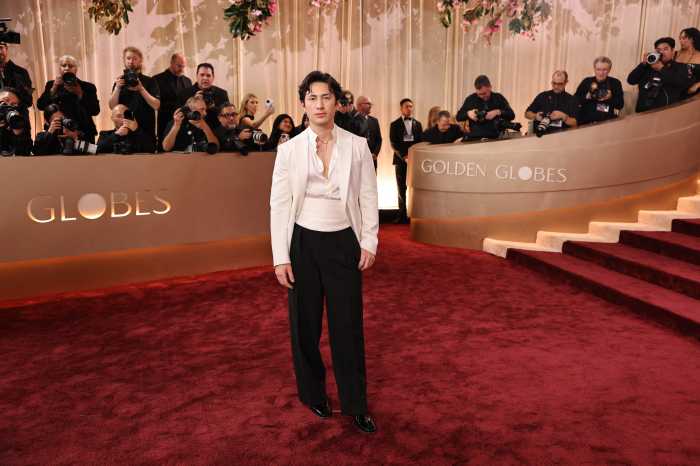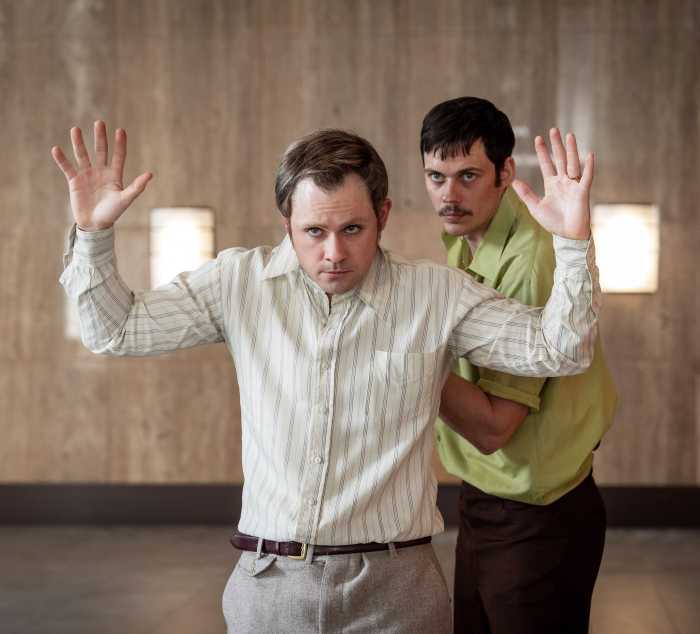Neo-noir to make you bite your nails, intellectually
Set in Switzerland, Merci begins with the re-marriage of chocolatier Mika Muller to renowned pianist Andre Polonski (Jacques Dutronc). They were married briefly, years earlier, and are now reunited after Andre’s second wife, Lisbeth, has died in an accident. Living with them is his son by Lisbeth, Guillaume (Rodolphe Pauly).
Soon after the wedding, Jeanne Pollet (Anna Mouglalis)—also a pianist—arrives at their door. Apparently, she and Guillaume were nearly switched at birth, and her curiosity has driven her to seek out and meet her “almost father” who is also a pianist. She is not Andre’s daughter, but she bears an uncanny resemblance, both in looks and habits, to the late Lisbeth. Andre is happy to have her visit again and to mentor her before an upcoming piano competition. Mika is unsettled by the girl’s appearance and Guillaume snarls at her with sibling rivalry and a justifiable fear of filial displacement.
Through it all, Mika tries to bear a polite façade, but her contempt for Jeanne is apparent. Mika seems to operate completely on a level of animal instinct; the mere presence of Jeanne disturbs her deeply, going beyond the young woman’s resemblance to Lisbeth. Jeanne is also very observant, so much so that when Mika seems to deliberately spill some hot chocolate intended for her stepson, Jeanne has a sample of the liquid tested by her boyfriend for poisons, narcotics, and other contaminants.
It’s unclear if Mika is truly murderous or not. She is very much a quiet, spidery menace in the coy apron she wears throughout the film. Isabelle Huppert capitalizes on her longstanding notoriety as being the ironic redheaded ice princess of French film, something director Claude Chabrol has mined in some of their six previous collaborations, which include Madame Bovary (where she was too icy to play Emma) and La Ceremonie, in which she and Sandrine Bonaire played a pair of “murderous maids” in the own right.
Comparisons to Hitchcock are routine when it comes to Chabrol’s oeuvre, but Chabrol (who along with fellow New Wave director/compatriot Eric Rohmer, wrote a book analyzing the British director''s first 44 films) has added innocent household objects into the mix of terror-filled fetish objects. It’s hard to improve on Hitchcock, but Chabrol’s Mika is as frightening with a thermos full of hot chocolate as any of Hitchcock’s villains ever were with a gun, knife, or rope.
Not unlike Theresa Russell’s character in Black Widow, Mika’s threatening stance is not cut and dry. Her motivations are not rational or easily explained. Huppert’s face appears to show everything, but it doesn’t. If she is a potential murderess, it’s not for money or anything material—it’s for her own survival.
This is the richness of Merci; Mika suffers from a feminist rage born of having to operate in a man''s world and still do what is expected of a care-taking wife and mother. She’s like the doctor in The Cancer Ward; no matter how many sick people are helped at work, she will still have to do the cooking and cleaning when she gets home, because she is a woman. While no one is pressuring Mika to take a traditional role, it’s clear that the pressure of conforming while having to prove herself “as good as a man” in business are factors in her fragile psyche and resentment.



































